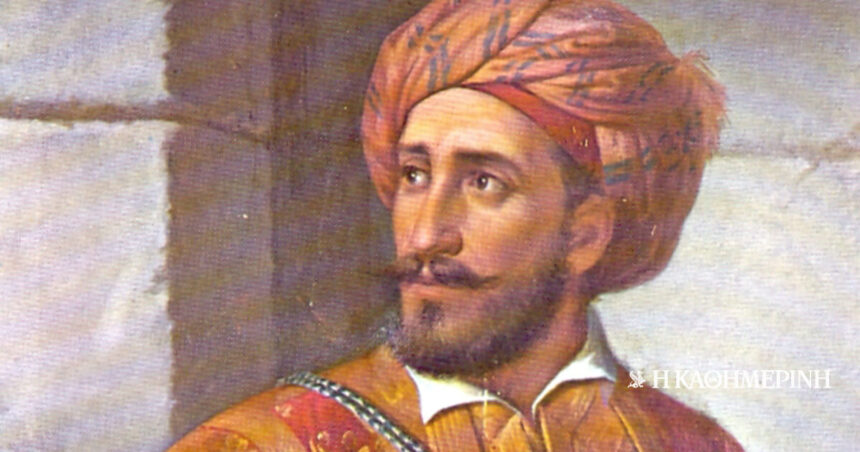THE Ioannis Makrigiannis It is one of the most iconic figures in modern Greek history. Played a decisive role not only in the Greek revolution of 1821 But also in the political developments of the Ottoman period, being one of the main protagonists of the 1843 revolution to publish a constitution. He also left, like many of the 1821 fighters, his memoirs as a legacy in future generations of Greeks, telling his experiences in the first half full of 19th century historical events.
THE John Triantafyllouas it was his real name, he was born in 1796 in Abori, a small settlement near the Crooki of Dorida. His family was rural. However, it seems that his father was sometimes active as a thief. His father lost his life in the early years of the 19th century by the forces of Ali Pasha, during the “stroke of thieves”. His mother then took her hunted family from Dorida and settled in Livadia.
Makrigiannis was initiated into the Friendly Society in 1820 and took intense action as a member.
OR Makrigiannis’ first contact with weapons He became the age of fourteen years, when he became a subordinate of his gendarmerie relative Panagiotis Lidoriki in Desfina, Fokida. He then settled in Arta, where he worked on the estates of another relative, Thanassis Lidoriki. By demonstrating hard work, he soon gained Lidoriki’s confidence and took over the management of his property. Over the years accumulated wealth and commerce.
Makrigiannis was initiated into the Friendly Society in 1820 and took intense action as a member. The explosion of the revolution found him in Patraswhere he had appeared seemingly for commercial reasons. It quickly became the city’s Ottoman authorities that Makrigiannis was a spy. He initially found refuge in the Russian consulate and then fled to Roumeli by boat. When he returned to Arta, however arrested by the Ottoman army. When he was finally released, he decided to take armed action, even though he had no war experience until then.
He was one of those who enthusiastically welcomed the news of the young Otto’s election to the Greek throne.
Initially, he participated in the revolution alongside Gogo Bakola, as the head of eighteen men whose salaries he paid. In 1822 he approached him Ulysses Androutsoswho appointed him a citizen of Athens when they released the small town of then. In 1824, he participated in the looting that took place in the Peloponnese in the context of the civil wars, assisting the Rumeliots. In the face of the danger of a crash of the fight by Ibrahim, however, he joined with the Moraites forces, participating in the battles in Neokastro and the Mill of Argolida.
Makrigiannis initially honored with office by Governor John Kapodistrias. But then he went to the opposition, reacting to authoritarianism that – as he himself argued – was shown by the commander. Indeed, it was one of those who enthusiastically welcomed the news of the young Otto’s election to the Greek throne. “Today the homeland is reborn and it is being suspended, which has been lost and exhilarated for a long time. Today, the militant, political, religious and military are inhibited, that our king came, whom we have lost with the power of God. Glory to his nasty name, sir, omnipotently, chandelier, multicolored! “He wrote characteristically in his memoirs.
Nevertheless, did not hesitate to participate in the September 3 Movementthe purpose of which was to give the king’s convention. Until his death on April 27, 1864, he did not cease to deal with politics, showing sincere interest in the country’s progress.
Curated by: Myrto Katsiera, Vassilis Minakakis, Antigoni-Despina Poumenidou, Athanasios Syroplakis




